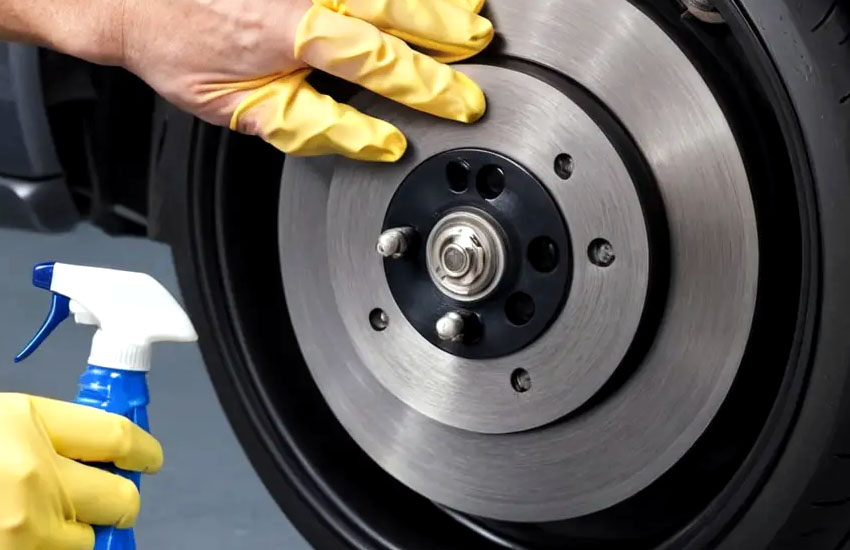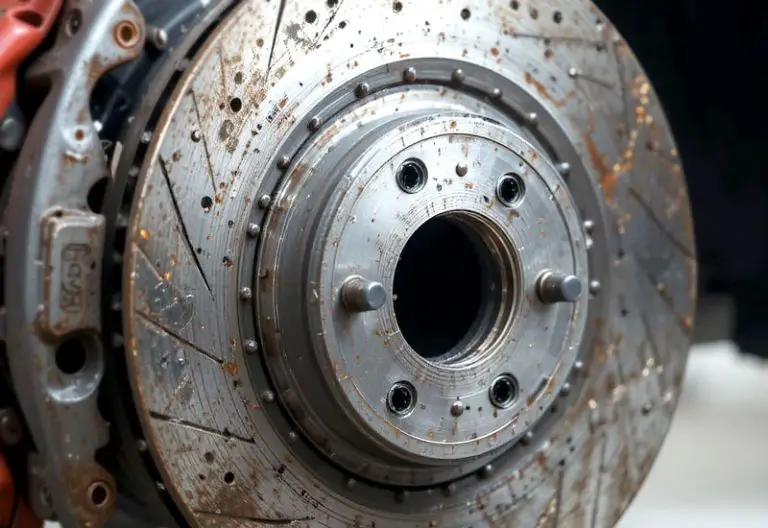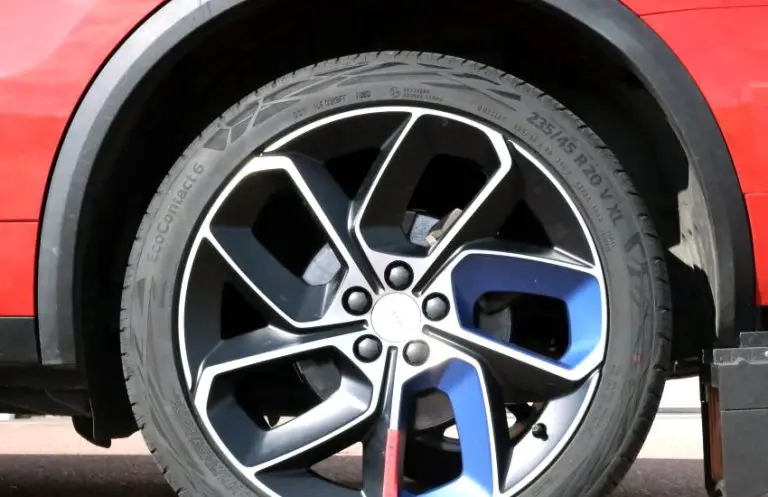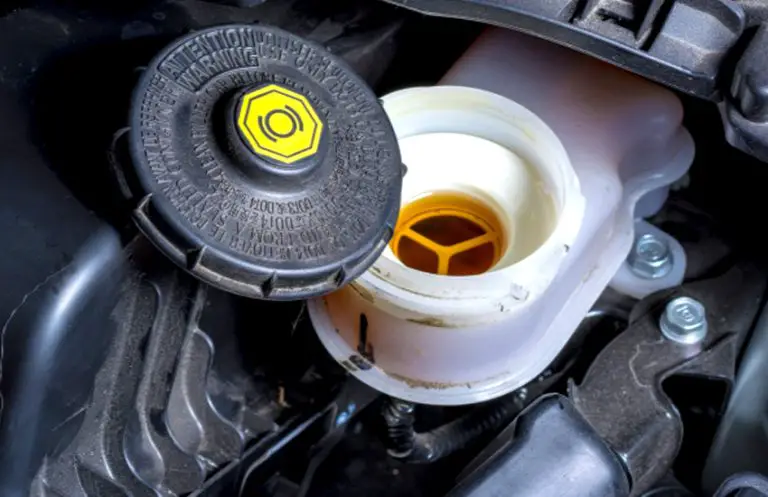Wasps are often a nuisance during warmer months, and many people search for quick and effective ways to deal with them. In the quest to find a solution, one of the more curious suggestions that has emerged is using brake cleaner to eliminate wasps. While brake cleaner is a powerful industrial product designed to clean the grease and dirt off of car brake parts, some people believe it can also be used to kill wasps. But does brake cleaner really work for this purpose, or is this just a myth? In this post, we will dive into the details of this question and examine whether brake cleaner is a viable option for wasp control.
In this article, we’ll explore the composition of brake cleaner, its effectiveness against wasps, the dangers of using it in this way, and safer alternatives for dealing with wasps. By the end, you’ll have a clear understanding of whether brake cleaner can help you tackle a wasp infestation—or if it’s better to stick with other methods.

What is Brake Cleaner and How Does It Work?
Brake cleaner, as the name suggests, is a cleaning solution designed for automotive purposes. It’s primarily used to remove brake fluid, grease, oil, dirt, and other contaminants from the surfaces of brake components, such as calipers and rotors. This chemical cleaner is available in spray form, and it works by dissolving oils and grime, leaving behind a clean surface. But beyond the automotive world, brake cleaner has been gaining attention for its possible use in pest control—specifically in eliminating wasps. To understand how it might affect wasps, it’s important to know what brake cleaner is made of and how it operates.
Composition of Brake Cleaner
Brake cleaners are made up of a combination of solvents, including acetone, methylene chloride, and chlorinated solvents. These ingredients work together to break down grease and oil. The solvents can evaporate quickly, which is one reason brake cleaner dries rapidly when applied to brake parts. When sprayed, brake cleaner releases a strong odor due to the chemicals in the solution. These chemicals are volatile and can be hazardous when inhaled or when they come into contact with the skin.
Interestingly, some of these solvents are highly toxic to insects. Wasps, like most insects, have a fragile exoskeleton and a nervous system that can be easily impacted by certain chemicals. The solvents in brake cleaner can interfere with the wasp’s respiratory system, leading to death. This is why brake cleaner can be effective in killing wasps on contact, though it may not always be the most reliable or safest solution for dealing with an infestation.
How Brake Cleaner Affects Wasps
When you spray brake cleaner directly on a wasp, the toxic chemicals quickly affect the insect’s respiratory system. Wasps breathe through tiny holes in their bodies called spiracles, and when these spiracles are clogged with brake cleaner, the wasp can suffocate. The solvents in brake cleaner can also disrupt the nervous system of the insect, causing paralysis and death. The fast-drying nature of the cleaner means that it doesn’t just kill the wasp instantly, but can cause long-term harm if the wasp is exposed for even a short period.
However, it’s important to understand that brake cleaner is not specifically designed for pest control. While it can be effective in eliminating wasps, it is also a highly dangerous substance that can be harmful to both humans and pets. The chemicals in brake cleaner are toxic and can cause serious health issues if not used with extreme caution. It’s also worth noting that brake cleaner can damage surfaces, including paint and certain materials. Therefore, even though it might kill wasps, the risks involved often outweigh the benefits.
The Risks of Using Brake Cleaner to Eliminate Wasps
While brake cleaner may seem like a quick and effective solution for eliminating wasps, it comes with several risks that can make it an unsuitable choice for most people. In this section, we’ll examine the dangers of using brake cleaner for wasp control, both to you and to the environment.
Health Risks to Humans
Brake cleaner is a chemical solvent, and inhaling its fumes can have severe consequences. Prolonged exposure to the vapors can lead to dizziness, headaches, nausea, and even unconsciousness in some cases. If brake cleaner comes into direct contact with your skin, it can cause irritation, burns, or even chemical reactions. This is especially concerning if you’re spraying it outdoors or in areas where it could be accidentally inhaled or splashed onto skin.
Using brake cleaner around your home, especially near areas where children or pets might be, is dangerous. The toxic nature of the chemicals means that there is a risk of unintentional exposure. Moreover, brake cleaner is flammable, which increases the potential for accidents, especially if used near open flames or heat sources.
Environmental Risks
Brake cleaner, especially those containing chlorinated solvents, can have harmful effects on the environment. If sprayed near plants, water sources, or animals, the chemicals in brake cleaner can leach into the soil and water, causing contamination. Chlorinated solvents, in particular, can be persistent in the environment, meaning they remain in the soil and water for a long time, leading to long-term pollution.
In addition, brake cleaner can harm beneficial insects such as bees, butterflies, and ladybugs. These insects play a crucial role in pollination and maintaining the ecological balance, and using brake cleaner indiscriminately can have unintended consequences on these populations.
Damage to Surfaces
Brake cleaner is not designed for use on all surfaces. If you happen to spray it on delicate or sensitive materials, such as painted surfaces or fabrics, it can cause damage. The chemicals in brake cleaner can strip paint, melt plastics, and cause discoloration. This can be particularly problematic if you’re spraying it around your house, as it could damage your home’s exterior or any furniture or items nearby.
Even if you are targeting a wasp nest in an outdoor area, there’s still a risk of causing damage. For example, spraying brake cleaner on outdoor furniture, decking, or landscaping can leave lasting marks. The chemicals can also seep into the soil, potentially harming plants and vegetation.
Limited Effectiveness
Another reason brake cleaner may not be the best choice for dealing with wasps is that its effectiveness is limited to the specific application. Brake cleaner is designed for immediate use, and it will kill wasps that it directly contacts, but it won’t solve the larger problem of an infestation. If you have a nest with dozens or hundreds of wasps, spraying brake cleaner on just a few individuals may not make much of an impact. Additionally, brake cleaner doesn’t address the root cause of the infestation—the nest itself. After the wasps are killed, you may still have a nest to deal with.
Safer Alternatives to Brake Cleaner for Wasp Control
While brake cleaner can technically kill wasps, there are much safer and more effective alternatives to deal with these pests. These methods are less harmful to both people and the environment, and they can help you eliminate wasps without risking serious health issues or property damage.
1. Wasp Spray
The most effective and safe way to eliminate wasps is by using a purpose-made wasp spray. These sprays are specifically designed to kill wasps on contact and are available in most hardware or home improvement stores. Wasp sprays are typically made with insecticides that are more targeted at wasps and other stinging insects, which means they are less harmful to humans, pets, and the environment than brake cleaner.
These sprays often come with long-range nozzles, allowing you to spray directly into a wasp nest from a safe distance, which is ideal for avoiding getting stung. They also work quickly to kill wasps, usually within minutes of application. Many wasp sprays also have a residual effect, meaning they continue to kill wasps that come into contact with the nest after the initial application.
2. Soapy Water
If you’re looking for a non-toxic and environmentally friendly way to eliminate wasps, soapy water can be surprisingly effective. Mixing dish soap with water and spraying it directly onto a wasp nest or individual wasps will suffocate them. The soap clogs their spiracles, preventing them from breathing and leading to their death.
This method is safe for humans and pets, making it an excellent choice for households with children or animals. However, it may take longer to work than commercial wasp sprays, and it requires you to be in close proximity to the nest, which can be risky.
3. Wasp Traps
Another way to control a wasp population is by using wasp traps. These traps are designed to attract wasps with bait and then trap them inside, preventing them from returning to their nests. You can either buy pre-made traps or make your own using simple ingredients like sugar water or overripe fruit. Placing these traps around the perimeter of your home or garden can help reduce the number of wasps in the area.
Wasp traps are especially effective during late summer and early fall when wasps are more active and in search of food. They can help reduce the overall number of wasps around your home without resorting to harsh chemicals.
4. Professional Pest Control
If you have a large or difficult-to-reach wasp nest, it may be best to contact a professional pest control service. Pest control experts have the tools and knowledge to safely remove wasp nests and eliminate the infestation without causing harm to you, your property, or the environment. They can also handle more aggressive species of wasps that might be harder to manage on your own.
Are These Questions in Your Mind?
Is it safe to use brake cleaner on wasps?
No, brake cleaner is not safe for use on wasps. While it may kill wasps, it is hazardous to humans, pets, and the environment due to its toxic chemicals. It’s better to use a specifically designed wasp spray or other safer alternatives.
Can brake cleaner cause harm to the environment?
Yes, brake cleaner can harm the environment. Its chemicals can contaminate soil, water, and affect wildlife, including beneficial insects. It should not be used outdoors or in areas where it might run off into the environment.
Do I need to use brake cleaner from a distance?
No, it’s not advisable to use brake cleaner from a distance. The chemicals can be harmful if inhaled or come into contact with your skin. It’s important to handle brake cleaner with care and follow the manufacturer’s instructions.
Can brake cleaner kill a wasp nest?
While brake cleaner can kill individual wasps, it is unlikely to eliminate an entire nest. A nest contains many wasps, and a single spray of brake cleaner will not be sufficient to address the problem.
Is it effective to use brake cleaner for wasp control?
Brake cleaner can kill wasps, but it is not a highly effective or safe method for dealing with a wasp infestation. There are safer and more efficient alternatives, such as wasp spray or soapy water.
Do I need to wear protective gear when using brake cleaner?
Yes, protective gear is recommended when using brake cleaner. Always wear gloves, goggles, and a mask to avoid inhaling fumes or coming into direct contact with the product.
Can brake cleaner kill other insects besides wasps?
Brake cleaner may kill other insects, but it is not designed for pest control. It is toxic to most insects, but using it as an insecticide is dangerous for both humans and pets.
Is it a good idea to use brake cleaner indoors for wasps?
No, using brake cleaner indoors for wasps is not a good idea. The strong fumes can be hazardous, and the chemicals can damage furniture and other surfaces.
Can brake cleaner damage the paint on my car?
Yes, brake cleaner can damage the paint on your car if it is sprayed on surfaces unintentionally. Always be cautious when handling brake cleaner around painted surfaces.
Do I need to kill the queen wasp to stop an infestation?
Yes, eliminating the queen wasp is often essential for stopping an infestation. However, it’s best to contact a professional for safe and effective nest removal.


